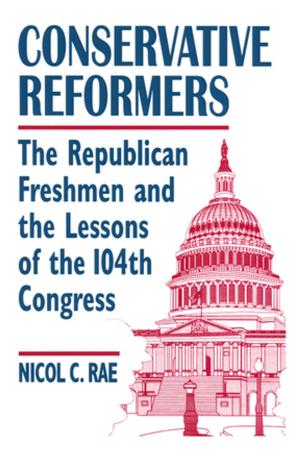Undocumented Immigrants in an Era of Arbitrary Law
The Flight and the Plight of People Deemed 'Illegal'
Nonfiction, Reference & Language, Law, Emigration & Immigration, Civil Rights| Author: | Robert F. Barsky | ISBN: | 9781317534334 |
| Publisher: | Taylor and Francis | Publication: | August 11, 2015 |
| Imprint: | Routledge | Language: | English |
| Author: | Robert F. Barsky |
| ISBN: | 9781317534334 |
| Publisher: | Taylor and Francis |
| Publication: | August 11, 2015 |
| Imprint: | Routledge |
| Language: | English |
This book describes the experiences of undocumented migrants, all around the world, bringing to life the challenges they face from the moment they consider leaving their country of origin, until the time they are deported back to it. Drawing on a broad array of academic studies, including law, interpretation and translation studies, border studies, human rights, communication, critical discourse analysis and sociology, Robert Barsky argues that the arrays of actions that are taken against undocumented migrants are often arbitrary, and exercised by an array of officials who can and do exercise considerable discretion, both positive and negative.
Employing insights from a decade-long research project, Barsky also finds that every stop along the migrant’s pathway into, and inside of, the host country is strewn with language issues, relating to intercultural communication, interpretation, gossip, hearsay, and the challenges of peddling of linguistic wares in the social discourse marketplace*.* These language issues are almost always impediments to anodyne or productive interactions with host country officials, particularly on the "front-lines" where migrants encounter border patrol and law enforcement officers without adequate means of communicating their situation or understanding their rights. Since undocumented people are categorized as ‘illegal’, they can be subjected to abuse and exploitation by host country officials, who can choose to either tolerate or punish them on the basis of unpredictable, changeable, and even illusory or "arbitrary" laws and regulations.
Citing experts at every level of the undocumented immigrant apparatuses worldwide, from public defenders to interpreters, Barsky concludes that the only viable policy to address prevailing abuses and inequalities is to move towards open borders, an approach that would address prevailing issues and, surprisingly, provide security and economic benefits to both host and home countries.
This book describes the experiences of undocumented migrants, all around the world, bringing to life the challenges they face from the moment they consider leaving their country of origin, until the time they are deported back to it. Drawing on a broad array of academic studies, including law, interpretation and translation studies, border studies, human rights, communication, critical discourse analysis and sociology, Robert Barsky argues that the arrays of actions that are taken against undocumented migrants are often arbitrary, and exercised by an array of officials who can and do exercise considerable discretion, both positive and negative.
Employing insights from a decade-long research project, Barsky also finds that every stop along the migrant’s pathway into, and inside of, the host country is strewn with language issues, relating to intercultural communication, interpretation, gossip, hearsay, and the challenges of peddling of linguistic wares in the social discourse marketplace*.* These language issues are almost always impediments to anodyne or productive interactions with host country officials, particularly on the "front-lines" where migrants encounter border patrol and law enforcement officers without adequate means of communicating their situation or understanding their rights. Since undocumented people are categorized as ‘illegal’, they can be subjected to abuse and exploitation by host country officials, who can choose to either tolerate or punish them on the basis of unpredictable, changeable, and even illusory or "arbitrary" laws and regulations.
Citing experts at every level of the undocumented immigrant apparatuses worldwide, from public defenders to interpreters, Barsky concludes that the only viable policy to address prevailing abuses and inequalities is to move towards open borders, an approach that would address prevailing issues and, surprisingly, provide security and economic benefits to both host and home countries.















